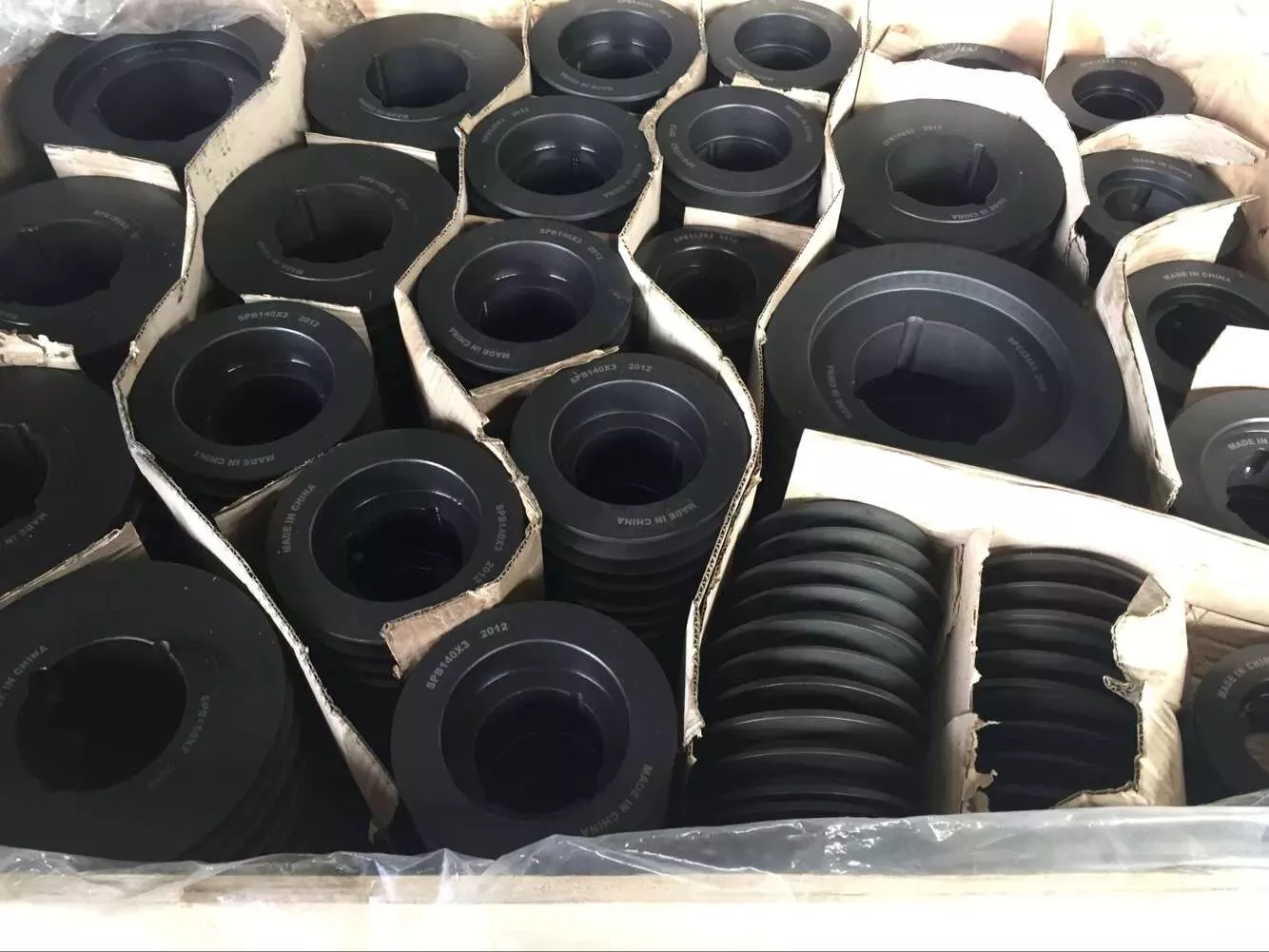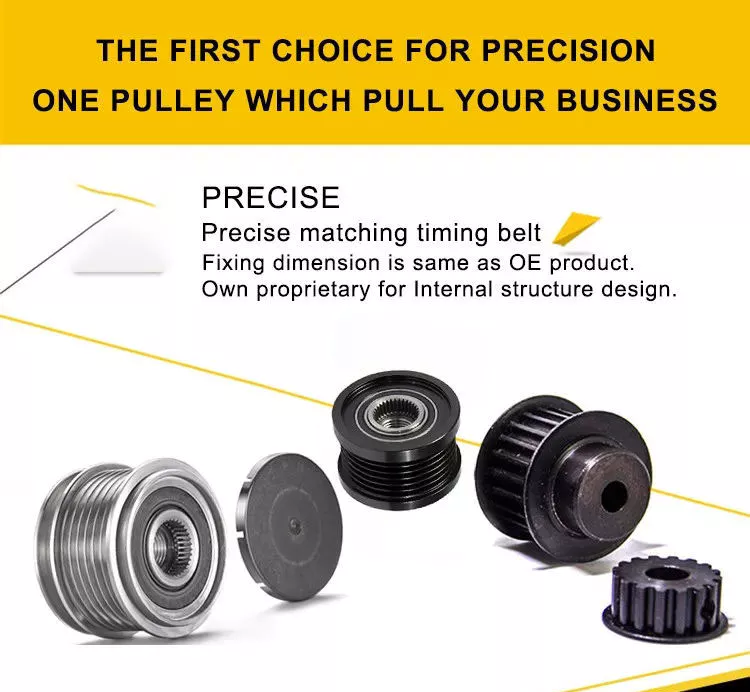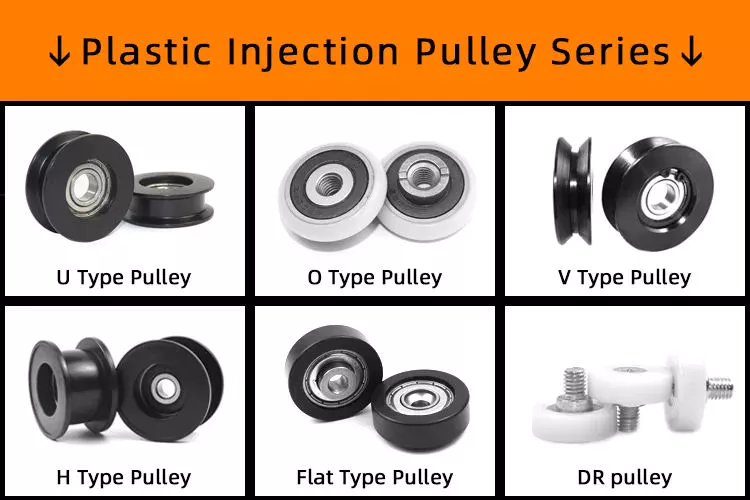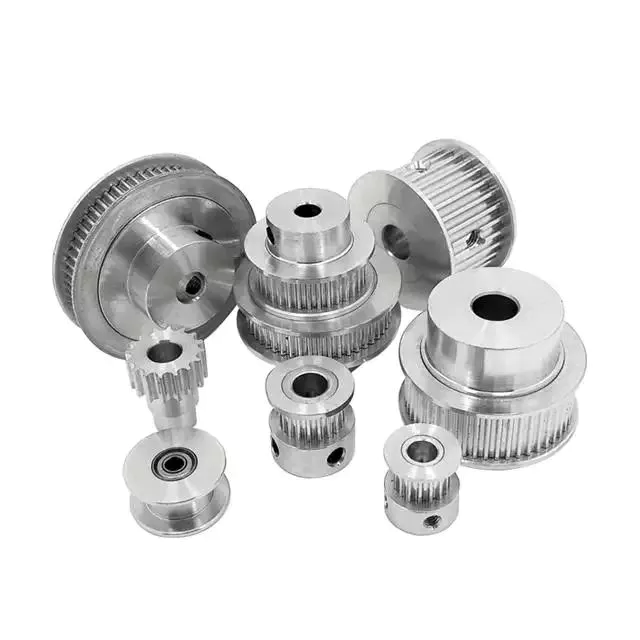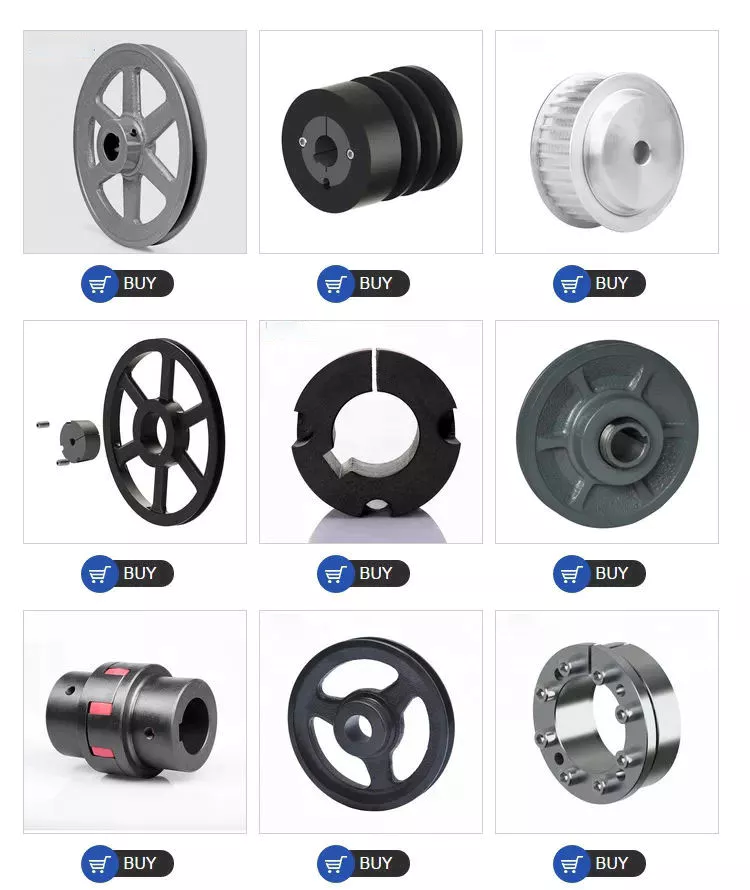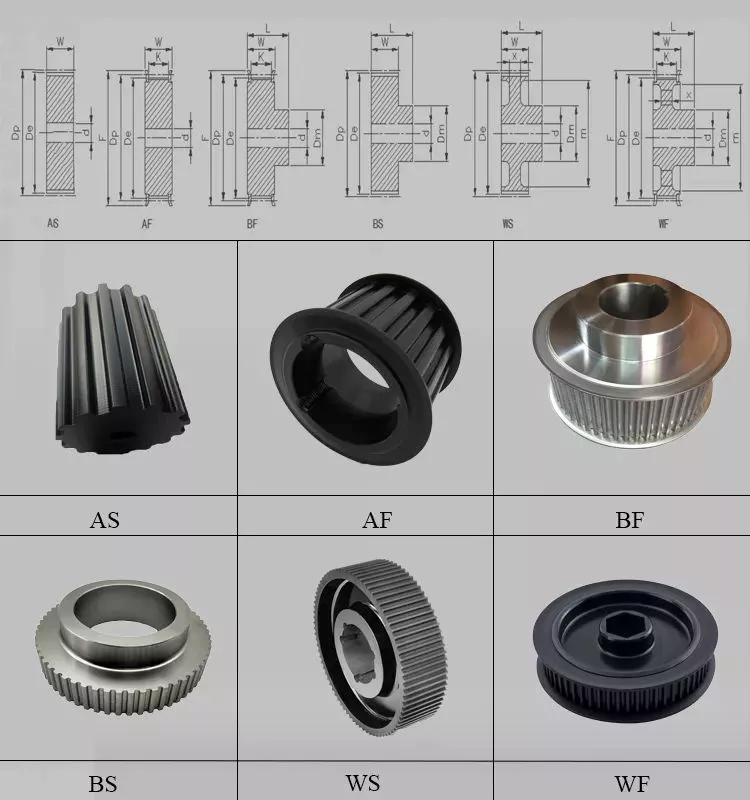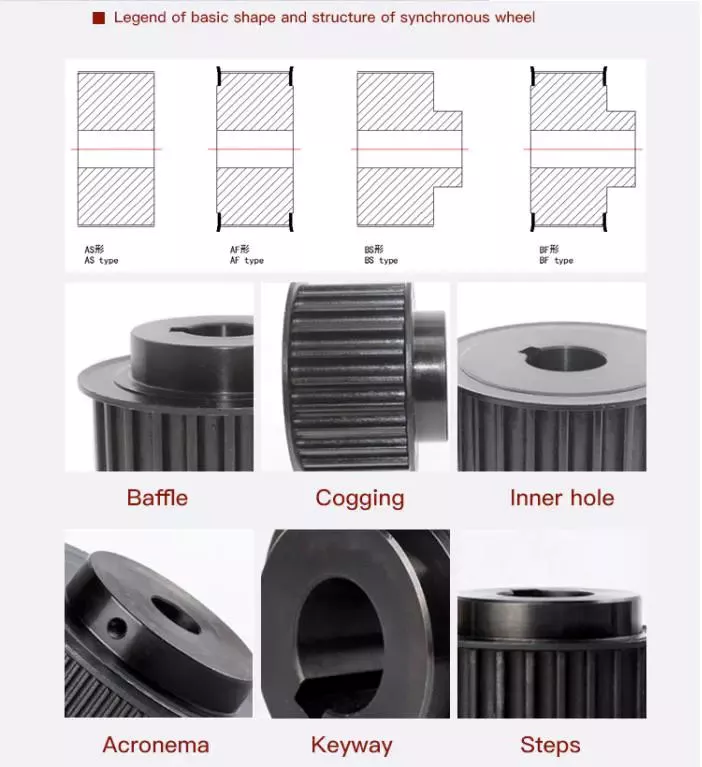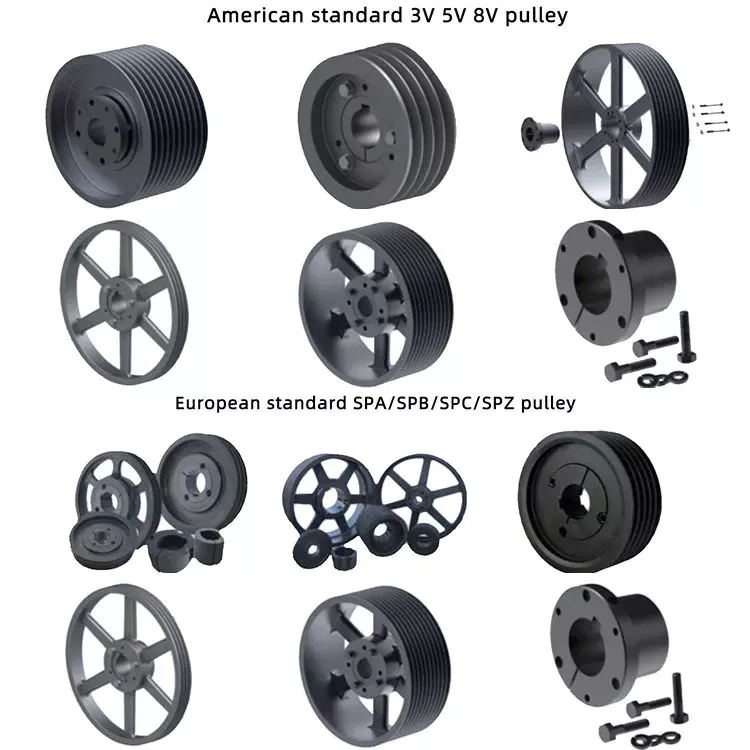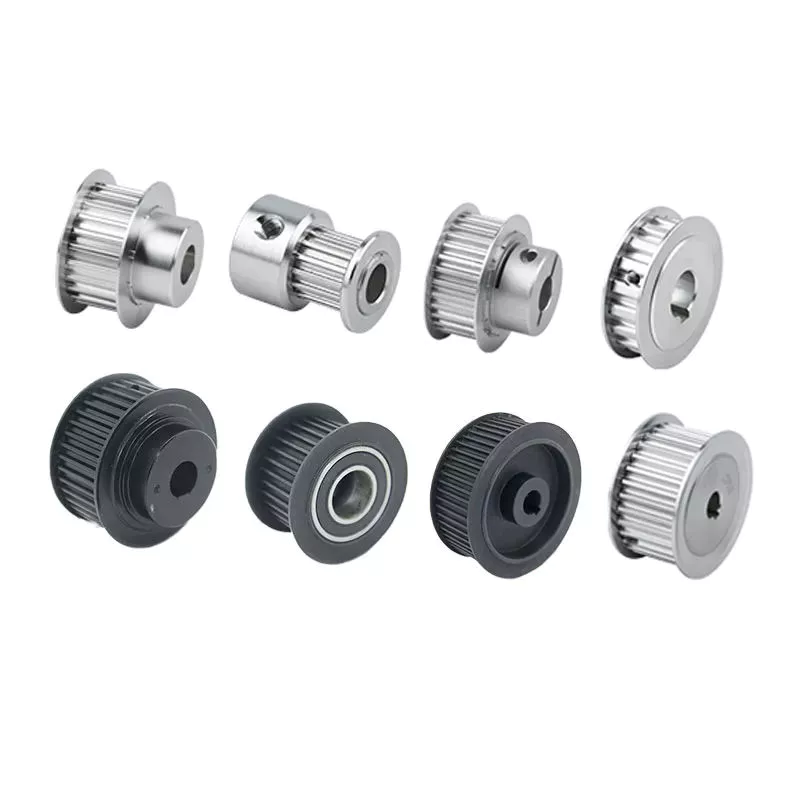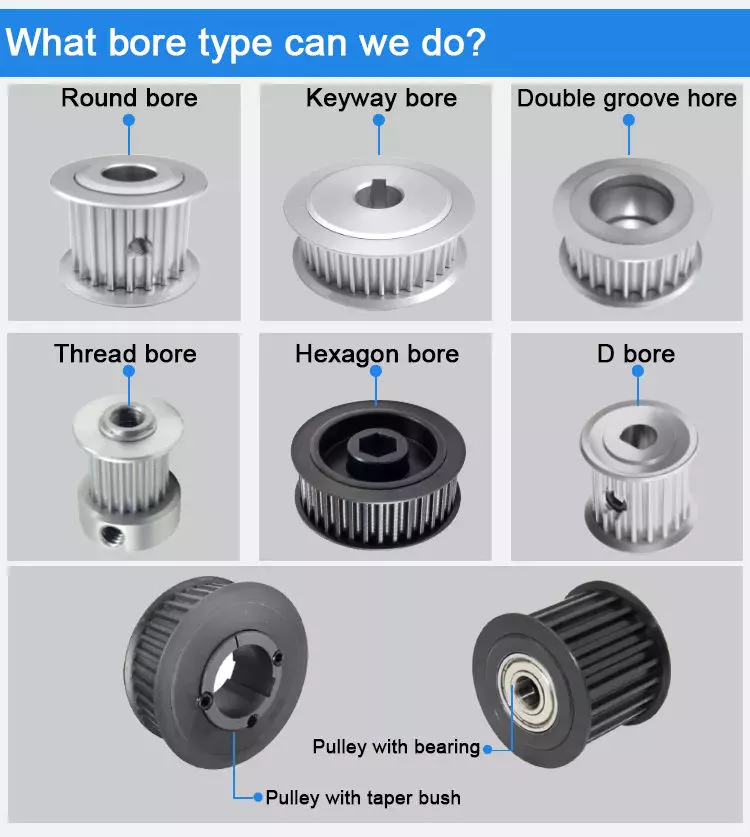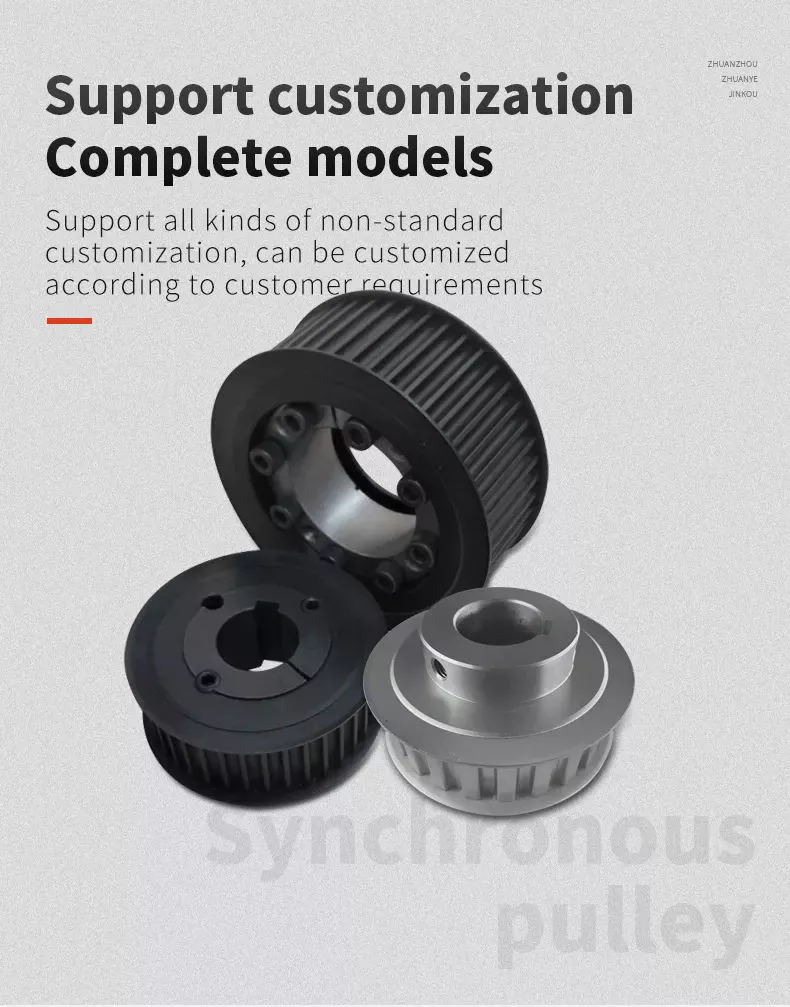Product Description
Detailed Photos
Product Description
| Item No. | Door and Window Plastic Bearing Pulley |
| Dimensions | OEM ODM |
| Material | Bearing -Chrome steel, carbon steel, stainless steel Plastic part- POM/ Nylon6 /Nylon66 +GF/PU/Rubber Housing part – Plastic(Nylon)/ Steel/ Zinc alloy die casting / Aluminium profile/ alu. Alloy die casting |
| Color | Original/black/white/Red/ Green/ Orange, or per customers’ requirement |
| Surface Treatment | Zinc plated/Nickle Plated/Black treatment/ Painting/Electrophoretic treatment |
| Features | heavy-duty,adjustable,low noise,easy installation,sliding smoothly,long life,standard,customized,etc. |
| Application | Sliding window and door, Sliding accessories, furniture accessories etc. |
| Packaing | Foil bag+Neutral Carton+Pallet, or per customers’ requirement |
| MOQ | 1000 pcs |
| Lead Time | According to the order q’ty |
| OEM& ODM | Technical drawing or sample is needed |
Company Profile
ABOUT US
Haibite was set up in 1996 and located at HangZhou, a beautiful city in China. Our company is bearing manufacturer&bearing distributor. Since it was first established, CHINAMFG was dedicated in research, development and manufacture of bearings. Now, CHINAMFG has become main and 1 of the first grade suppliers of all kinds of bearings. We could develop the products constructed from different materials, structures, shapes, colors etc.
WELCOME TO THE CLUB!
1. Our rollers are in stable quality with smooth rotation, long life operation, small movement, advanced injection technology engineering etc.
2. The Adjustable Rollers with smooth and long lasting operation, higher performing features like wider adjustment ranges, long rolling life performance, easy installment. It’s available in multiple housing choices with any wheels to fit different aluminnum. Our roller ensure alignment across the full adjustment ranges within built-in retention system.
3. The customized hardware, like plastic parts, stamping patrs, cold forging steel patrs are widely applied in the window and doors, furniture, householders, transmission system, industrial drive system etc.
We are constantly improving and striving for excellent service. We hold a very high regard for our customers, the quality of our products, and our level of customer service.
FAQ
1. who are we?
We are based in ZheJiang , China, start from 2017,sell to North America(1.00%),Africa(1.00%),Western Europe(1.00%),Southern Europe(1.00%). There are total about 51-100 people in our office.
2. how can we guarantee quality?
Always a pre-production sample before mass production;
Always final Inspection before shipment;
3.what can you buy from us?
Bearing cage,Bearing pulley,Plastic products,Miniature bearing,Needle roller bearing
4. why should you buy from us not from other suppliers?
Hardware pulley source factory,20 years professional bearing pulley experience
5. what services can we provide?
Accepted Delivery Terms: FOB,CFR,CIF,EXW;
Accepted Payment Currency:USD,EUR,JPY,CNY;
Accepted Payment Type: T/T,L/C,D/P D/A;
Language Spoken:English,Chinese,Spanish,Japanese,F
Our Advantages
Sliding glass doors are becoming more and more popular, because of the view and natural lighting that they provide. But there can be some difficulty when it comes to maintaine them, such as the rollers have worn out. The key part is knowing which roller matches the original. Many people believe that alternatives can be found by identifying the door manufacturer individually. Actually, Most rollers are generic and used by various door manufacturers.
As the professional manufacturer of sliding rollers, we use various identifying characteristics to determine the best replacement option for your door. In addition to the number of wheels your roller uses to support the door, the presence of dimples, bumps, cut-outs and flared edges on the rollers housing will narrow down replacement options substantially. The way that the assembly installs in the door frame is also vital. The key dimensions to confirm a replacement include the width and height of the roller’s outer housing, as well as the diameter of the wheel. In addition to the diameter of the wheels, the material that they’re made of, steel or nylon, is also a factor. Long-term, metal wheels are known to hold up better but they can also cause the track to wear out faster, especially on heavy doors. Nylon wheels tend to be kinder to the track but may not last as long as their steel counterparts.
Purchase Notice
1.Pls send us an inquiry or leave us a message, there will be a dedicated staff to serve you within 1 hours.
2.You can ask us to take actual photos of the products for you, and free samples would be provided.
3. Welcome to visit our factory to negotiate orders, we will do our best to protect the safety of your business journey.
4. Packaging can be customized according to customer requirements
Finally, Please be sure to click “Contact supplier” to contact us, or “Call us” with any questions that you may have.
/* January 22, 2571 19:08:37 */!function(){function s(e,r){var a,o={};try{e&&e.split(“,”).forEach(function(e,t){e&&(a=e.match(/(.*?):(.*)$/))&&1
| Certification: | ISO |
|---|---|
| Pulley Sizes: | Type F |
| Manufacturing Process: | Casting |
| Samples: |
US$ 0.01/Piece
1 Piece(Min.Order) | Order Sample |
|---|
| Customization: |
Available
| Customized Request |
|---|
.shipping-cost-tm .tm-status-off{background: none;padding:0;color: #1470cc}
|
Shipping Cost:
Estimated freight per unit. |
about shipping cost and estimated delivery time. |
|---|
| Payment Method: |
|
|---|---|
|
Initial Payment Full Payment |
| Currency: | US$ |
|---|
| Return&refunds: | You can apply for a refund up to 30 days after receipt of the products. |
|---|
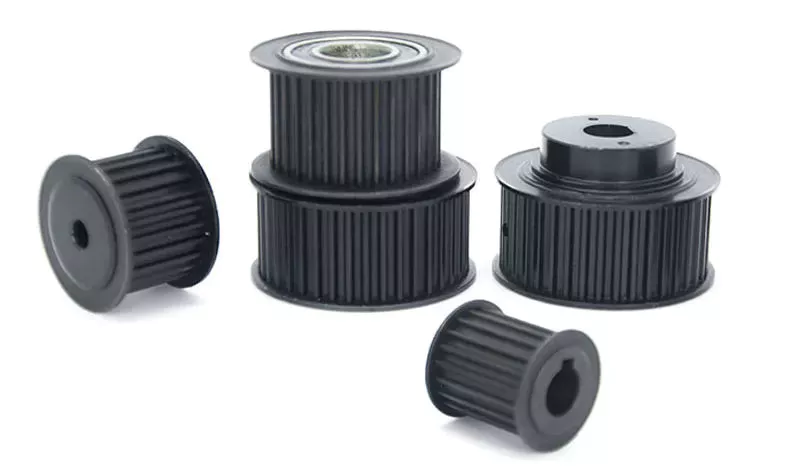
How do pulleys contribute to the operation of conveyor systems?
Pulleys play a critical role in the operation of conveyor systems by facilitating the movement of materials or products along the conveyor belt. Here’s how pulleys contribute to the functioning of conveyor systems:
1. Power Transmission: Conveyor systems typically utilize a motorized pulley, also known as a drive pulley or head pulley, which is connected to an electric motor. The motor rotates the drive pulley, which in turn moves the conveyor belt. The rotational power from the motor is transmitted to the belt through the drive pulley, enabling the continuous movement of the belt and the materials being conveyed.
2. Belt Tension and Tracking: Pulleys are used to maintain proper tension in the conveyor belt. Tension pulleys, also called idler pulleys, are strategically placed along the conveyor system to apply tension to the belt. These pulleys help to keep the belt taut and prevent slippage or sagging. Additionally, tracking pulleys are used to align the conveyor belt, ensuring it stays centered and runs smoothly along the intended path.
3. Load Support: Pulleys provide support for the conveyor belt and the load it carries. The belt wraps around the pulleys, and the load is distributed over the surface of the belt. Pulleys with larger diameters are often used at points where heavy loads are encountered to help distribute the load more effectively and prevent belt deformation or damage.
4. Directional Changes: Conveyor systems may require changes in direction to accommodate the layout or specific processing needs. Pulleys known as bend pulleys or snub pulleys are used to redirect the belt and change its course. These pulleys are designed to guide the belt smoothly around bends or corners without causing excessive stress or strain on the belt.
5. Speed Control: Pulleys can be utilized for speed control in conveyor systems. By using pulleys of different sizes or by employing variable speed drives, the rotational speed of the drive pulley can be adjusted, affecting the speed at which the conveyor belt moves. This allows for flexibility in the conveyance process, accommodating different material flow rates or specific operational requirements.
6. System Support and Stability: Pulleys, along with their associated support structures, provide stability to the conveyor system. They help to maintain the alignment and tension of the belt, preventing misalignment, vibrations, and excessive belt movement. Properly designed and maintained pulleys contribute to the overall reliability and smooth operation of the conveyor system.
Conveyor systems are widely used in industries such as manufacturing, mining, logistics, and warehousing. Pulleys are essential components that ensure the efficient and reliable movement of materials and products along the conveyor belt, enabling automated and continuous material handling processes.
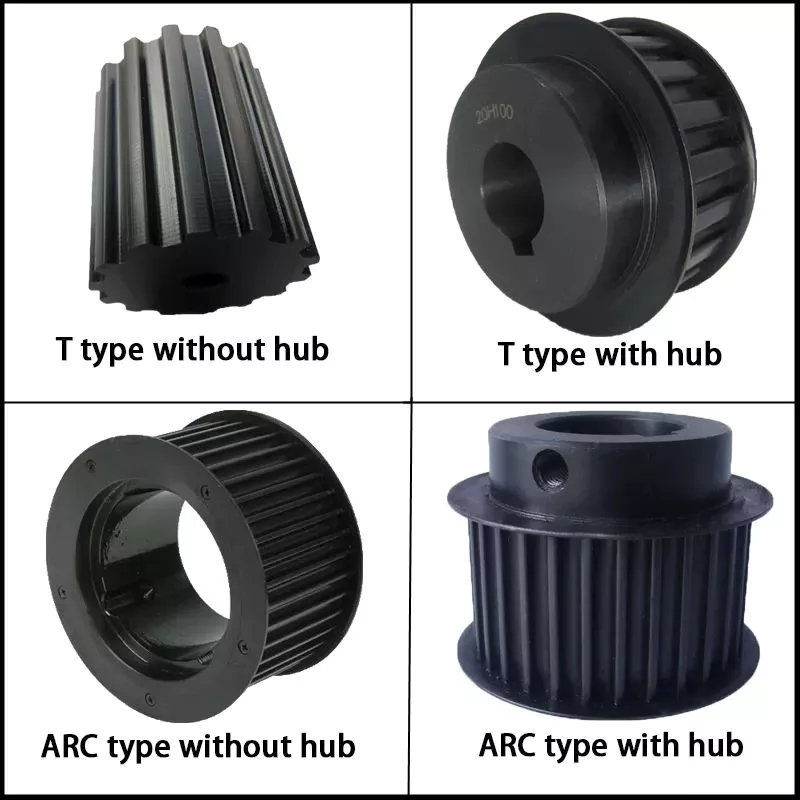
How are pulleys used in theater and stage rigging?
Pulleys play a vital role in theater and stage rigging, enabling the movement of scenery, props, and equipment with precision and control. They are essential components of the rigging systems used in theaters and stages for lifting, flying, and manipulating various elements during performances. Here’s how pulleys are commonly used in theater and stage rigging:
1. Fly Systems: Fly systems are used to raise and lower scenery, backdrops, curtains, and other elements onto and off the stage. They consist of a series of pulleys, known as blocks, mounted on battens or grids. The pulleys allow the use of counterweights or motorized systems to control the movement of the loads. By changing the configuration of the pulleys and adjusting the counterweights, stage crews can achieve smooth and precise vertical movement of the flown elements.
2. Counterweight Systems: Counterweight systems, commonly employed in fly systems, utilize pulleys to guide the lift lines and distribute the load. The pulleys help reduce friction and ensure that the counterweights move smoothly and efficiently. By adjusting the number and arrangement of pulleys, as well as the counterweight amounts, technicians can achieve the desired balance and control the speed and movement of the flown elements.
3. Line Sets: Line sets are used to suspend and control various elements such as lighting fixtures, speakers, and special effects equipment. Pulleys are incorporated into the line sets to redirect the lines and provide mechanical advantage. This allows technicians to easily raise, lower, and adjust the position of the equipment as needed. By manipulating the pulley system, stage crews can precisely position the equipment and achieve optimal lighting, sound, and visual effects during performances.
4. Automated Systems: In modern theater and stage rigging, automated systems are becoming increasingly prevalent. These systems use motorized pulleys, known as winches or hoists, to control the movement of scenery, lighting, and other elements. The motorized pulleys enable precise and programmable control, allowing for complex and dynamic stage effects. These systems often incorporate multiple pulleys and computerized controls for enhanced automation and synchronization.
5. Rope and Cable Management: Pulleys are also used in theater and stage rigging to manage ropes and cables. They are incorporated into rope locks, cable management systems, and tensioning devices to guide and redirect the lines, ensuring smooth operation and minimizing the risk of entanglement or snags.
6. Safety and Load Distribution: Pulleys in theater and stage rigging play a crucial role in ensuring safety and proper load distribution. They help distribute the load across multiple lines, reducing the strain on individual ropes or cables. Additionally, pulleys are often equipped with safety mechanisms such as locking devices or secondary braking systems to prevent accidental drops or equipment failures.
Overall, pulleys are integral to theater and stage rigging, providing the mechanical advantage, control, and safety measures necessary for the smooth and precise movement of scenery, props, and equipment. They enable the creation of visually stunning and immersive performances, enhancing the overall theatrical experience for audiences.
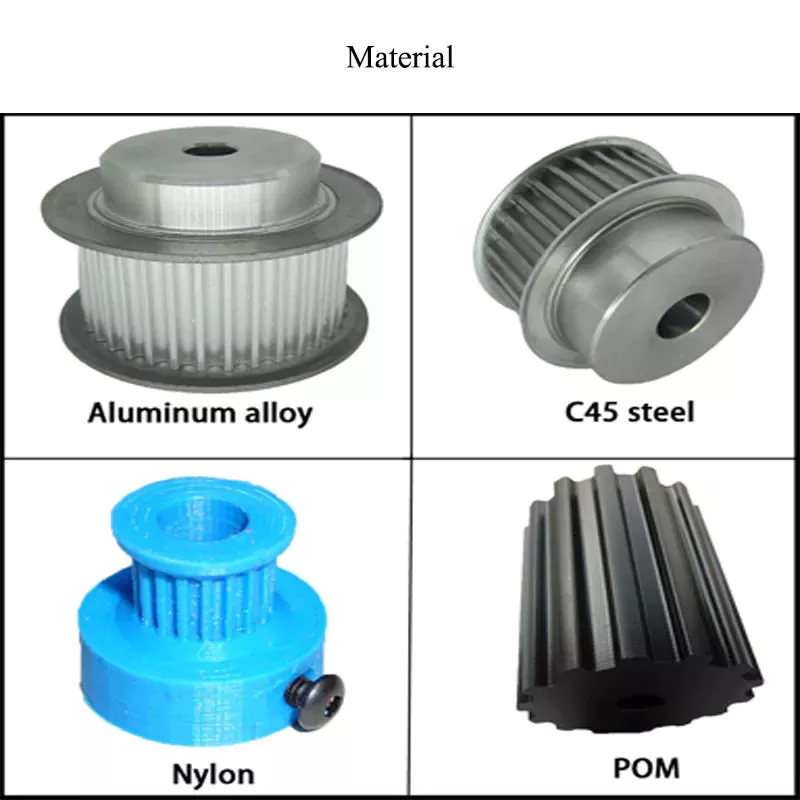
What safety precautions should be observed when using pulleys?
When using pulleys, it is important to observe several safety precautions to ensure the well-being of individuals involved and prevent accidents. Here are some key safety precautions that should be followed:
1. Proper Training: Individuals who operate or work around pulley systems should receive proper training on their usage, including understanding the equipment, safety procedures, and potential hazards. Training should cover topics such as load limits, proper lifting techniques, and the importance of following safety guidelines.
2. Inspections and Maintenance: Regular inspections and maintenance of pulleys are crucial for identifying any signs of wear, damage, or malfunction. Inspect pulleys for cracks, deformation, excessive wear, or any other issues that may compromise their integrity. Replace damaged or worn-out pulleys immediately to prevent accidents.
3. Load Capacity: Ensure that the load being lifted or moved does not exceed the rated load capacity of the pulley system. Exceeding the load capacity can lead to overloading, which may result in equipment failure, accidents, or injuries. Refer to the manufacturer’s guidelines or load capacity charts for proper load calculations.
4. Secure Attachment: Ensure that pulleys are securely attached to their mounting points or support structures. Loose or improperly secured pulleys can cause the load to shift or fall, posing significant safety risks. Use appropriate hardware, such as bolts or clamps, and follow manufacturer recommendations for proper attachment methods.
5. Personal Protective Equipment (PPE): Individuals involved in pulley operations should wear the necessary PPE, depending on the specific hazards present. This may include safety helmets, gloves, safety glasses, and appropriate footwear. PPE helps protect against potential injuries from falling objects, impacts, or contact with moving parts.
6. Clear Work Area: Maintain a clear work area around the pulley system. Remove any obstructions, debris, or tripping hazards that could impede safe operation or cause accidents. Adequate space should be provided for safe movement and positioning of individuals involved in the operation.
7. Communication and Signaling: Establish clear communication and signaling protocols when working with pulleys. Use standardized hand signals or communication devices to ensure effective communication between operators, spotters, and other personnel involved. This helps coordinate movements, avoid misunderstandings, and prevent accidents.
8. Emergency Stop Procedures: Familiarize yourself with the emergency stop procedures for the pulley system. Ensure that all individuals involved are aware of how to quickly and safely stop the operation in case of an emergency or unexpected event. Clearly mark emergency stop buttons or switches and ensure they are easily accessible.
9. Lockout/Tagout: If performing maintenance, repairs, or adjustments on the pulley system, follow proper lockout/tagout procedures to isolate energy sources and prevent accidental startup. Lockout/tagout procedures help protect against unexpected movements or releases of stored energy.
10. Risk Assessment: Conduct a thorough risk assessment before using pulleys. Identify potential hazards, evaluate associated risks, and implement appropriate control measures to mitigate those risks. Regularly review and update risk assessments as necessary.
It is essential to consult relevant industry standards, guidelines, and local regulations specific to your application or jurisdiction to ensure compliance with safety requirements when using pulleys.


editor by CX
2024-04-24
